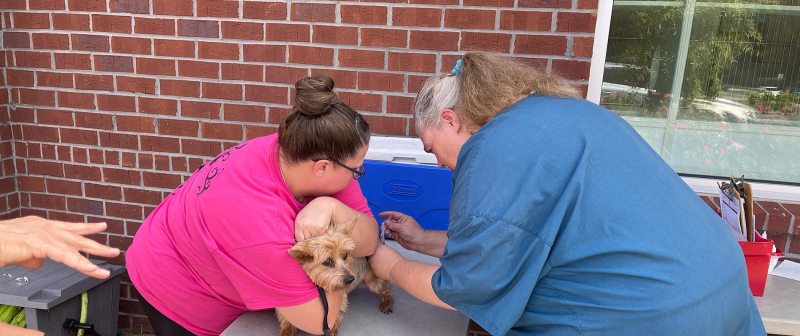How Much Is It To Get Dog Vaccines – What’s better than a puppy? That’s right, your very own puppy! So what do you need to know before becoming a pet parent?
Welcome to the world baby! Everything is growing for your pup right now, so there is a lot to prepare for.
How Much Is It To Get Dog Vaccines

Your puppy is ready to come home and turn your world upside down. It’s time to put your preparation into practice, and remember to do your best.
Puppy & Kitten Vaccinations, Desexing And Microchipping
You are entering a period of incredible growth, lots of learning and new adventures. Play with a shared world.
Your fur baby is approaching adulthood. Can you meet his maturity? Sigh… they grow so fast don’t they?
Your puppy is a year old and probably not so little anymore. Be sure to schedule their first annual checkup.
Your dog is now a permanent member of the family. Enjoy who they are and the bond you now share on this special stage.
How Much Are Dog Vaccinations?
Your dog is now an adult. They understand their place in your home and in the wider world.
Like most seniors, senior dogs have additional needs. Learn to care for your best friend and support his health as he grows up.
So once your puppy settles into the home, how do you make sure your new pup has the best protection against common infectious diseases? Fortunately, today we have effective vaccinations for puppies that help protect them from these dangerous infections.

Here are some simple guidelines you can follow to give your puppy the best chance of staying protected. Vaccination guidelines vary between animal breeds and regions in Australia. The protocol may also vary depending on the specific brand of vaccine recommended by your veterinarian. Below is the approach I use in my practice.
Pet Owners Can Get Free And Low Cost Vaccines, Pet Supplies Sunday In Wake County
The first vaccinations for puppies consist of a 3-in-1 vaccine known as C3, which covers the following life-threatening diseases:
Most puppies for sale in New Zealand will usually have had their first vaccinations before you bring them home, but it’s important to ensure you have a vaccination certificate to prove this.
A second vaccination for puppies is usually done with your vet about 4 weeks after the first vaccination. As you can see in the list above, the 2nd vaccination includes the 2nd dose of the C3 vaccine and may also include a vaccination against canine distemper, sometimes known as kennel cough or kennel cough. Kennel cough consists of a viral component (Parainfluenza) and a bacterial component (Bordetella). This vaccine can be given as an intranasal dose (a drop in the nostrils), orally (a drop in the mouth), or by injection (it can be added to the C3 vaccine and given as a single injection under the skin).
Puppies are given their final vaccinations at a minimum of 16 weeks of age, because before that age maternal antibodies acquired when puppies are nursed by their mother can still be circulating in your puppy’s blood and this can affect how the puppy is doing. vaccine is administered. Work:
Puppy Shots And Vaccination Schedules
Whenever your puppy has had his vaccinations, your vet will perform a clinical examination and this will give you the opportunity to ask questions about your puppy’s overall health, including the importance of high-quality nutrition for your puppy’s rapid growth. More information on puppy nutrition here.
Once your puppy’s first vaccinations are complete, your vet will usually recommend about 12 months after your puppy’s last vaccination. From then on, annual health checks are recommended and recommendations for future vaccinations are discussed with your vet.
Puppy parents have probably heard of leptospirosis, a serious bacterial infection that causes liver and kidney disease that can affect pets and people in some parts of Australia.

Transmission depends on the breed, but dogs can become infected from an environment contaminated with urine from infected rats, eaten or bitten by an infected rat, or through urine from infected livestock (eg, dairy farms, pig farms). This disease is more common in high rainfall and inner city areas with large rat populations
Cat & Dog Vaccinations
. Remember to discuss the risk of leptospirosis with your local veterinarian to see if this disease is a problem in your area.
1. Pollock RV, Carmichael LE Maternally inherited immunity to canine parvovirus infection. transmission, restriction and interference with vaccinations. J Am Veterinary Medical Association 1982;180(1):37-42.
2. Day MJ, Horzinek MC, Schultz RD et al. WSAVA guidelines for vaccination of dogs and cats. J Small Anim Pract 2016;57:E1–45. Your puppy is your best four-legged friend in the world, and his health and well-being are of primary concern. You feed, walk and take care of your dog, and you want him to grow up and live the happiest life possible. The last thing you want for your pet is to see them get sick and suffer. That is why vaccination is so important to prevent deadly and unnecessary diseases. There is a lot of misinformation about pet vaccinations, and it’s easy to get confused and frustrated by the mixed messages. Our guide will help you understand what vaccinations are and why they are so important to the health of your dog and your family.
Like human vaccines, dog vaccinations are designed to prevent your dog from getting sick. Vaccinations provide limited or permanent immunity against infectious and deadly diseases that can affect your dog’s quality of life as well as the health of your human family.
Petco Love Gifts Community With Free Pet Vaccines
Vaccines are effective because they contain infectious agents designed to mimic disease-causing microorganisms. Once injected into the body, the agent stimulates the dog’s immune system. The puppy’s body sees the agent as a threat, attacks it, and then remembers it so it can later fight off the disease if it is exposed to it.
It takes about seven days for a puppy’s body to respond to the vaccine and develop immunity, and it is best to vaccinate your dog when he is healthy. A sick puppy’s immune system is weakened and less effective at developing immunity to microorganisms. Vaccines are not a cure for a disease, but a way to prevent it.
Once your puppy is vaccinated, you will need to keep his vaccinations up to date. This way, your puppy will stay healthy as he grows into adulthood. That’s why you should take your puppy to the vet for annual checkups and start and maintain a vaccination program. The type and number of vaccinations for your dog depends on the dog’s age, habits, environment, health and lifestyle.

Vaccinations will protect your puppy against some of the most dangerous and common diseases. While all dogs should follow a vaccination schedule, puppies require more frequent and timely vaccinations as their immune systems develop.
Dog Vaccination Information — Seaside Home Veterinary Care
Vaccinating your puppy means you are preventing the spread of these viruses and diseases from your dog to other people’s pets. In addition, puppy vaccinations are required so your dog can attend training classes, boarding kennels and dog parks where puppies learn important socialization skills.
Immunization is not difficult at all. Your vet can keep track of your puppy’s vaccinations and remind you when the next one is due.
Puppies should follow your vet’s vaccination schedule as this depends on where you live in Australia and other risk factors.
Adult vaccination cycles will increase at this time. Once your puppy is older, he should be vaccinated against kennel cough every year and vaccinated with C3 every three years. Your vet may also recommend an annual C5 vaccination.
How Much Are Dog Shots? A Guide To Vaccination Costs For Dogs
Veterinarians often give vaccinations against several viruses or diseases at the same time. It is a good idea for dog owners to know the abbreviations for these vaccinations and to know why some of these vaccinations are combined as they are prescribed.
Vaccines for dogs can be divided into two types: core vaccine and non-core vaccine. Core vaccines are necessary and every dog or cat should receive them, regardless of their age, breed, health history or living environment. These mandatory vaccinations prevent life-threatening infectious diseases for your puppy. Here are the basic vaccinations your dog needs to stay healthy.
Distemper is an incurable and sometimes fatal viral infection, especially when it affects puppies and young dogs; About 50% of dogs that suffer from the disease will die from this virus. This devastating infection affects the central nervous system, respiratory and digestive systems, especially affecting the brain, spinal cord and airways.

CDV is a virus that is easily spread through the air by coughing or sneezing, or by sharing utensils, toys, or other utensils. This virus is resistant to most cleaning products, so it can live in your home environment and possibly infect other pets in the future. If a dog contracts distemper, it will shed the virus for months. Puppies can contract this disease through their mother’s placenta.
Average Cost Of A Vet Visit For Dogs: Must Know Facts And Figures
Vaccinating your puppy against CDV will prevent the virus from infecting your dog and spreading to other areas and animals. This condition is especially important for puppies living in rural areas, where they may come into contact with infected people
How much is it to get waxed, places to get dog vaccines, how much dog vaccines cost, how often to get vaccines, how much is it to get implants, where to get dog vaccines, how much is it to get my dog vaccinated, how much is puppy vaccines cost, is it safe to get multiple vaccines at once, how much to dog vaccines cost, how to give dog vaccines, how much are dog vaccines

